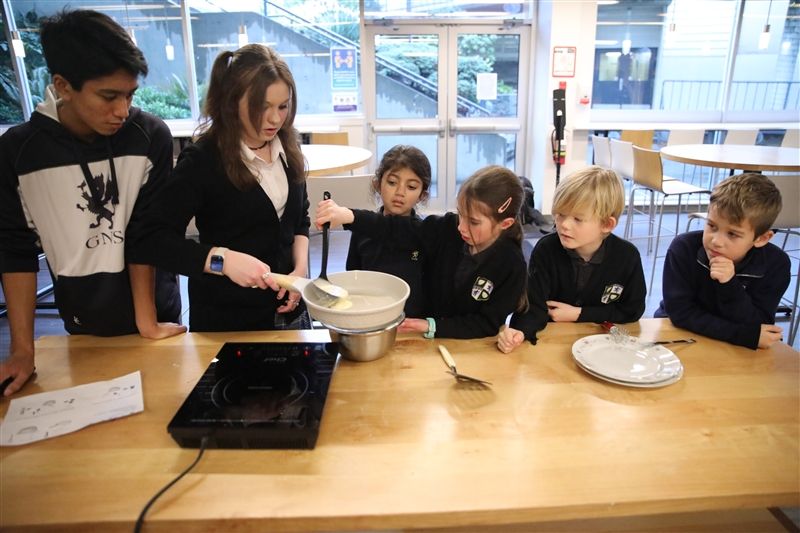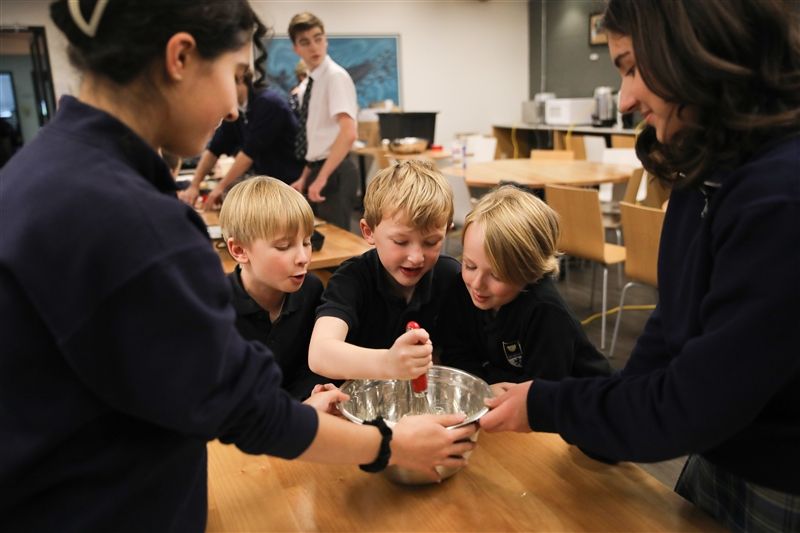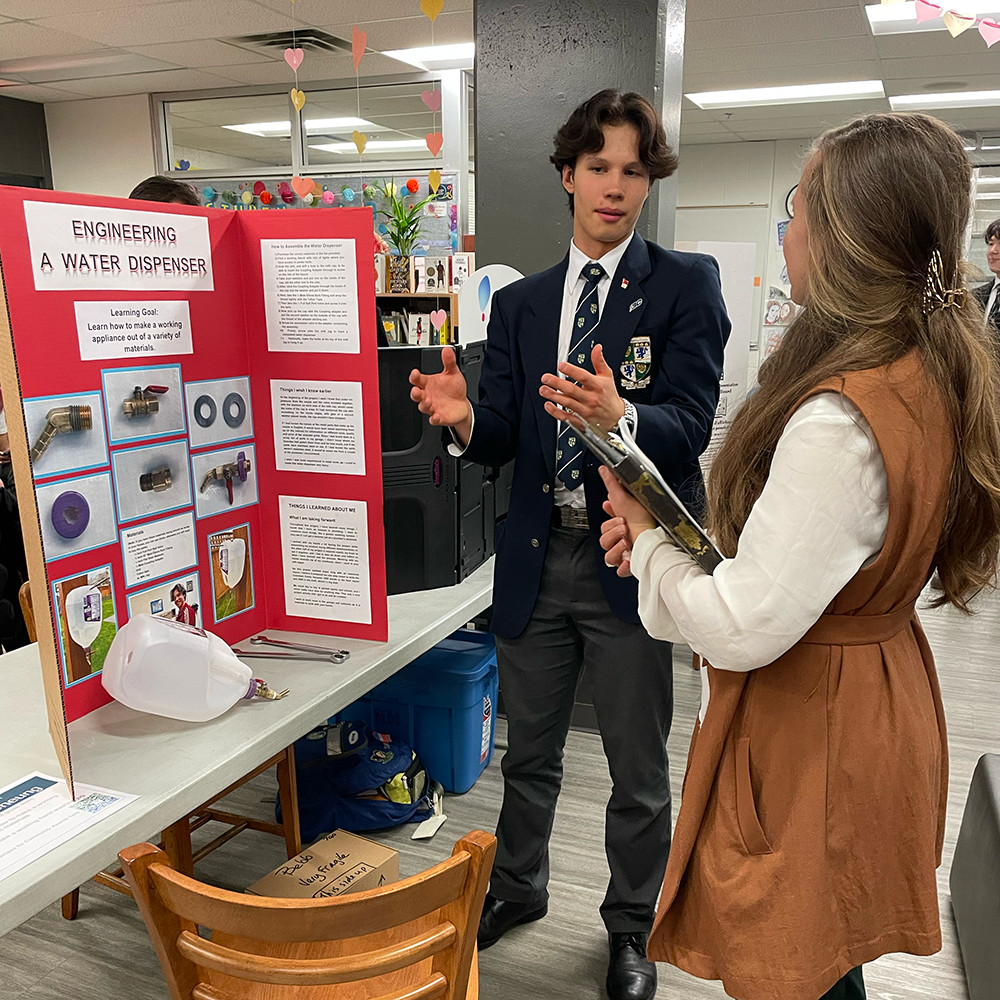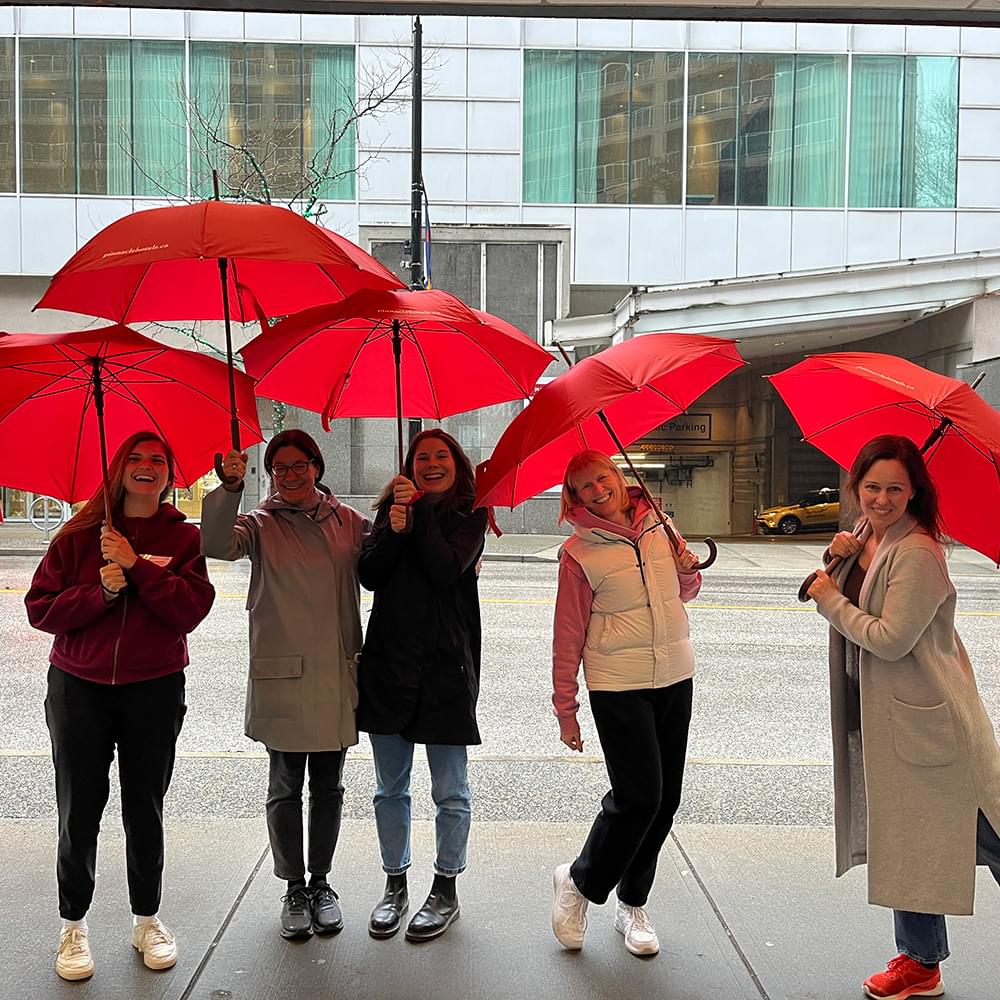When studying a second language, learning about culture is vital.
In Junior, Middle and Senior School, French culture and food are important aspects of much of the student’s learning. Sometimes it will be grade-specific, and other times can be taught to a combination of grades.
“Culture is such an integral part of the IB Diploma Programme course for all the languages,” said Mme. Clare Turner, French Teacher. “In the DP, we assess their ability to talk about cultural events and cultural traditions—it’s all part of the Internal Assessments, which are their orals in French.”
While learning about culture is crucial to the IB Diploma Programme, it also starts much earlier in both the Junior and Middle School.
At the Beach Campus, Mme. Kathleen Stamp-Vincent, French Teacher, has incorporated food into learning, particularly with Grade 2 students.
“In their creativity Unit of Inquiry, the children went on a pretend trip to Paris where they were able to try some French pastries,” she explains.
Students had fun and enjoyed the pastries and it was an excellent leadership opportunity for the Grade 4 helpers, but it was also an important opportunity for them to learn French.
“My role in this Unit of Inquiry is to foster language acquisition, not just creativity,” she said. “I want them to be able to communicate their creative ideas in the target language while experimenting with a French dish.”
The Grade 2 students learned the vocabulary for mixing, chopping and adding ingredients to make crepes. They were then inspired to create their own recipes for crepe fillings, which they made in collaboration with Grade 9 and 11 students at the Pemberton Woods Campus. The older students supervised the younger ones and helped to measure, mix and cook so they could enjoy their delicious masterpieces.

With the other Junior School grades, Mme. Stamp-Vincent likes to teach them the recipe for la tire d’érable, maple taffy.
“Incorporating food into French teaching is a great way to get the students inspired,” she said. “Food is an important aspect of French culture. It’s part of their history and lives.”
At the Middle School, students in the Grade 6 unit named “Célébrons!” talked about festivals in different francophone regions and looked at how food is connected to those celebrations.
“In our unit, we talk about Carnival, and how food is connected to various celebrations like the maple sugar on ice,” explained Mme. Jackie Maycock, French Teacher. “We also learn about food in “Bon Appétit,” where we explore the restaurant aspect of culture with cafes and brasseries.”
In the bon appétit unit, students look at how food helps bring people together and connect certain types of food to French culture.
“In our unit, the students explore French menus and see the different types of food that are offered,” said Mme. Maycock. “Students get to act the role of restaurant patron with another student acting as the server. They get to explore the interaction with pleasantries and how to order politely and use food vocabulary.”
In the Senior School, the Grade 10s have a special unit called “You are what you eat,” where they learn about foods in various Francophone countries. They researched a French-speaking country or region of France to learn about their traditional foods and created a slideshow. To top it off, they each created a blog about their respective regions/countries and celebrated the end of the unit by making dishes from the region to share with classmates. The dishes included Quiche Lorraine, gombo végétarien, gâteau à la farine de châtaigne and creme caramel.
“In Grade 11 and 12 food as such isn’t a unit, but it’s included,” said Mme. Turner. “There are five major units in the Diploma Programme. One is identity (who you are, where you come from) and another is experiences (leisure time, travel and volunteering abroad), and all of these have various parts that bring in foods.”
As an International Baccalaureate school, our faculty create teaching units that develop students’ confidence in managing their own learning through the Approaches to Learning. Through their focus on food and culture, our Language Acquisition teachers are providing students with the opportunity to not just learn French, but also to work on creative thinking, communication, research and collaboration skills as well. Bravo!





